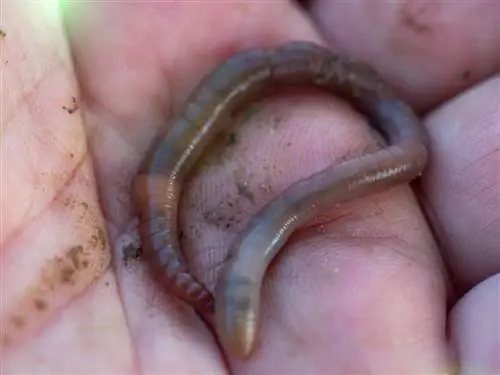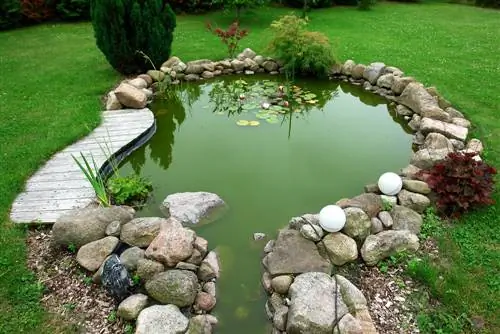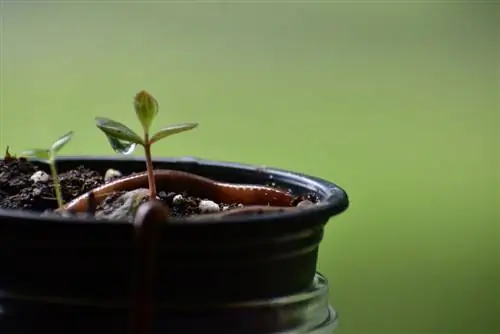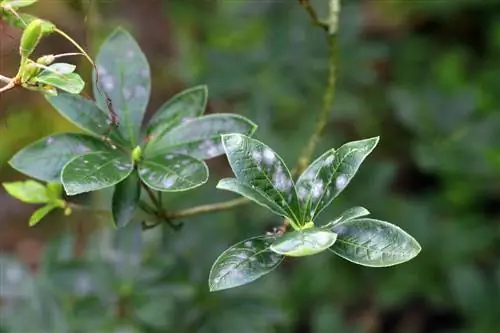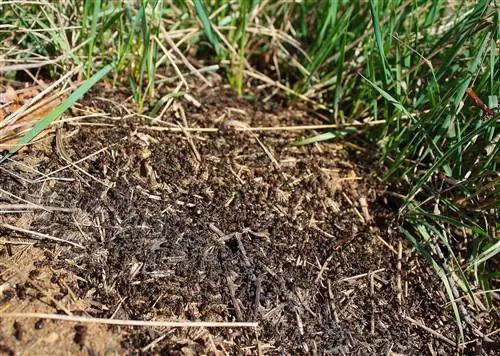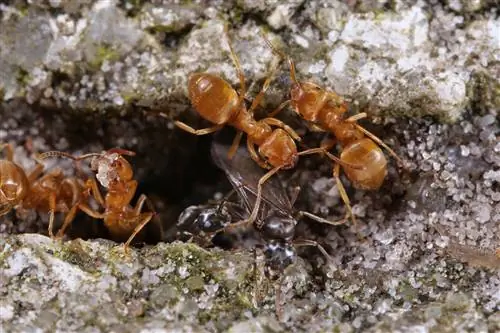- Author admin leonars@hobbygardeners.com.
- Public 2023-12-25 17:45.
- Last modified 2025-01-23 11:22.
Everyone knows how useful earthworms are in the soil. They eat the dead organic plant material and loosen the soil through their constant digging. However, in a narrow flower pot, worms cause more harm than good.
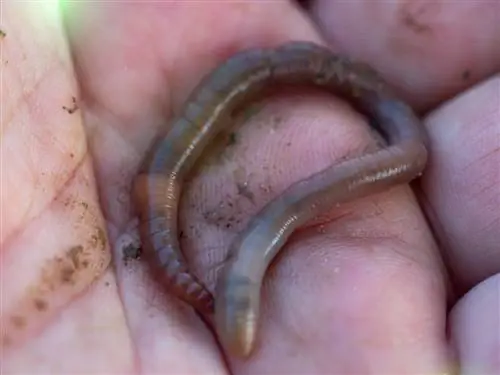
How do I remove earthworms from the flower pot?
Earthworms can get into flower pots if you use garden soil. They can harm plants by attacking the roots. To remove them, place the pot completely in the water so that the worms come to the surface and can be collected.
How do earthworms get into the flower pot and why do they harm the plants?
Earthworms are not normally found in flower pots. However, if you use garden soil or soil from the forest, earthworms or their eggs can be introduced. As it loosely digs through the earth in open terrain, eats up dead plant fibers and applies natural fertilizer with its droppings, it becomes… Flower pot quickly becomes too tight. It doesn't find enough food and as a result attacks the delicate roots of the potted plants. This damages the plant.
Fighting earthworms in flower pots
It is not necessary to use chemicals to get rid of earthworms. You have probably already observed earthworms leaving the wet soil in the garden after heavy rainfall. Too much water will also drive the worms out of the soil of the houseplants. Proceed as follows:
- Fill water in a bucket or tub.
- Take the flower pot and place it in the water. The earth should be completely submerged in water.
- Wait for some time until the earth is soaked with water.
- The worms will leave their wet home and swim to the surface.
- Collect the worms.
- Relocate the animals to your garden so that they can continue to do their useful work there.
Flooding the infected flower pot is a good method, but eggs or larvae often remain in the pot. Therefore, the measure should be repeated after some time. So that the houseplant can recover from heavy watering, it should always drain well. Watering is not necessary in the near future.

